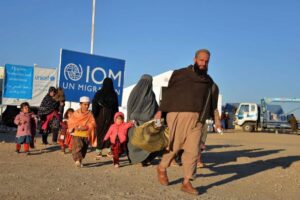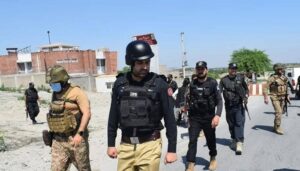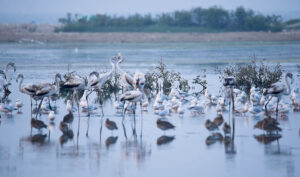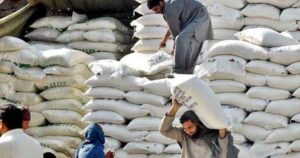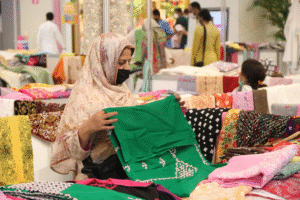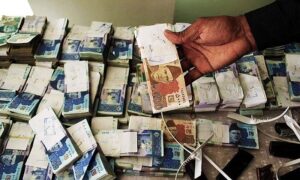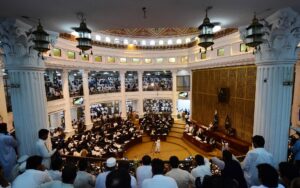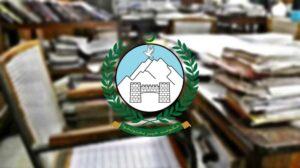KHYBER — The road to Khyber was long, but the people kept coming. From Waziristan, Bannu, Kurram, and beyond, thousands of Pashtuns marched toward the Pashtun Qaumi Jirga, their determination undimmed by the violence that had already claimed several lives.
As the sun rose over the tribal region’s rugged hills, they gathered under the weight of grief and hope, driven by a collective desire for peace and justice.The roadblocks and checkpoints set up by the government did little to deter them. Some had walked for miles, navigating difficult terrain and skirting security forces that had been deployed to prevent large gatherings. For many, this was not a political act but a personal one.
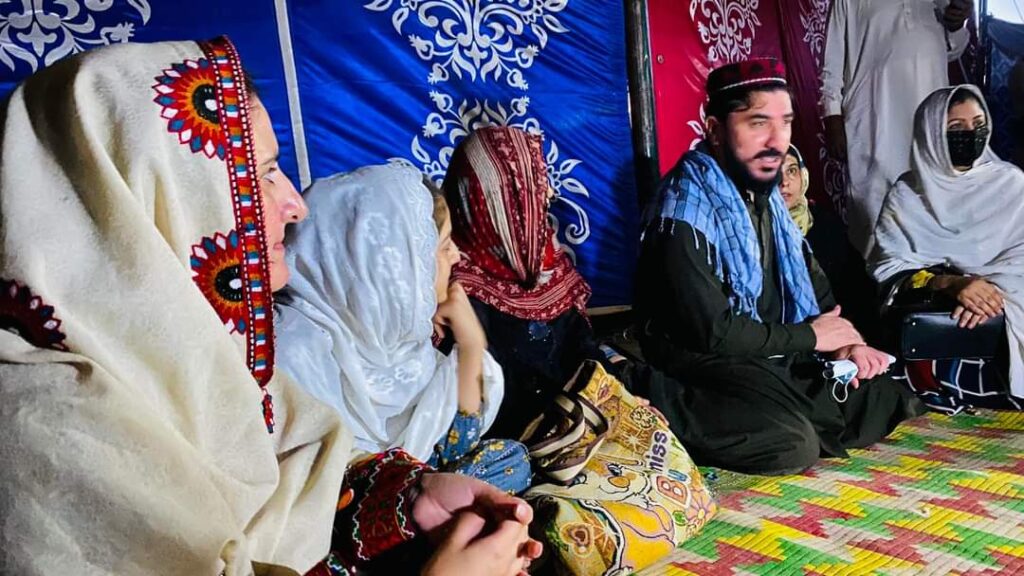
They came to mourn their dead and demand a future free of insecurity and terrorism.The jirga, a traditional assembly deeply rooted in Pashtun culture, had been called by the Pashtun Tahafuz Movement (PTM) to address the growing tensions in the region. But this was no ordinary gathering. Blood had already been spilled. Days earlier, police had opened fire on a previous jirga, killing several attendees and leaving many more wounded. In the wake of this violence, the atmosphere was thick with both sorrow and defiance.
“We Will Not Be Silenced”
Among the sea of people were those who had lost loved ones in the recent clashes. Mothers with tired eyes and fathers clutching photos of their sons moved through the crowd, their faces etched with the pain of loss. But there was also a sense of unyielding determination. “We will not be silenced,” said one man from South Waziristan, his voice hoarse with emotion.”They shot at us, but we are still here. We will keep coming until they listen.”
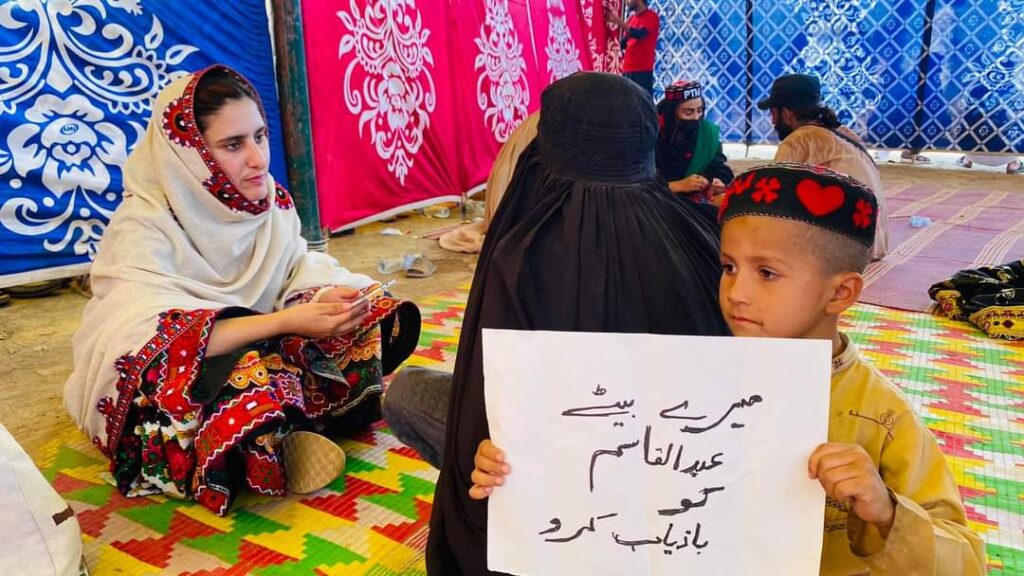
The mourners soon found solidarity in the political leaders who arrived to join them. Omar Ayub, the Opposition Leader in the National Assembly, and Asad Qaiser, former Speaker of the National Assembly, walked into the gathering with heavy hearts. Their presence sent a message that this was more than just a regional issue; it was a national concern.
Addressing the crowd, Ayub spoke with anger and resolve. “They fired directly at jirga participates. They martyred our brothers. Mohsin Naqvi and Shehbaz Sharif are responsible for this violence,” he said, his voice cutting through the quiet hum of the gathering. “We will raise this on the floor of the National Assembly. We will raise it in the media. Those responsible will be held accountable.”Ayub’s words were met with a wave of applause and chants from the crowd.
They echoed his condemnation of the violence, but also shared in his call for peace. “We are here to support the jirga’s demand for peace,” Ayub declared. “This is not just a demand of the Pashtun people; it is our demand as well.”
A Tradition of Resistance
The Pashtun Qaumi Jirga is not just a meeting; it is a powerful symbol of Pashtun unity and resistance. Historically, jirgas have played a central role in resolving disputes and addressing community grievances, and in this moment, the gathering took on a new significance. The people were not just convening to discuss their future — they were asserting their right to have one.
Former Speaker Asad Qaiser, speaking after Ayub, reinforced the PTI’s support for the Pashtun people. “We are all Pashtun, and we stand with you,” he said. ” I have spoken about the issues of Waziristan and the tribal districts in the National Assembly, and I will continue to do so. We will not stop until there is complete peace and justice.”
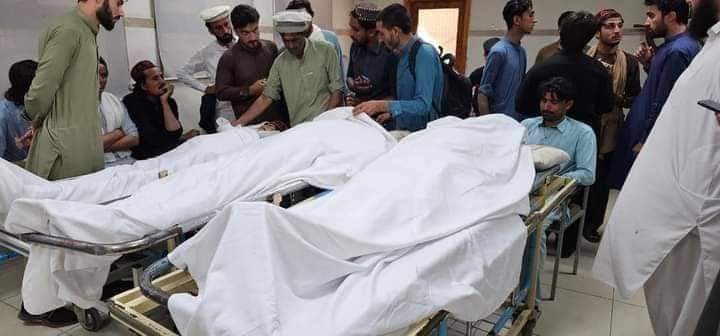
Qaiser also took the opportunity to call for the full restoration of trade ties with Afghanistan, recognizing the economic lifeline that cross-border commerce represents for many in the tribal areas. “We must open all the trade routes with Afghanistan. It is vital for our people,” he urged, drawing cheers from the crowd.
Calls for Peace and Constitutional Engagement
Khyber Pakhtunkhwa Governor Faisal Karim Kundi also weighed in, acknowledging the tension and pain but urging the protesters to keep their movement within constitutional bounds. “As a Pashtun, I will join you,” Kundi told the gathering, but there should be no anti-state slogans and no foreign flags.”Kundi emphasized the importance of working within Pakistan’s legal and constitutional framework, promising that the government would defend the constitutional rights of the Pashtun people. “We will fight your case in Parliament, but only if you stay committed to Pakistan’s Constitution,” he said. “We will not engage with those who reject it.”His words highlighted a delicate balancing act — on one hand, supporting the legitimate grievances of the Pashtun people, and on the other, warning against any move that might be seen as undermining the state.
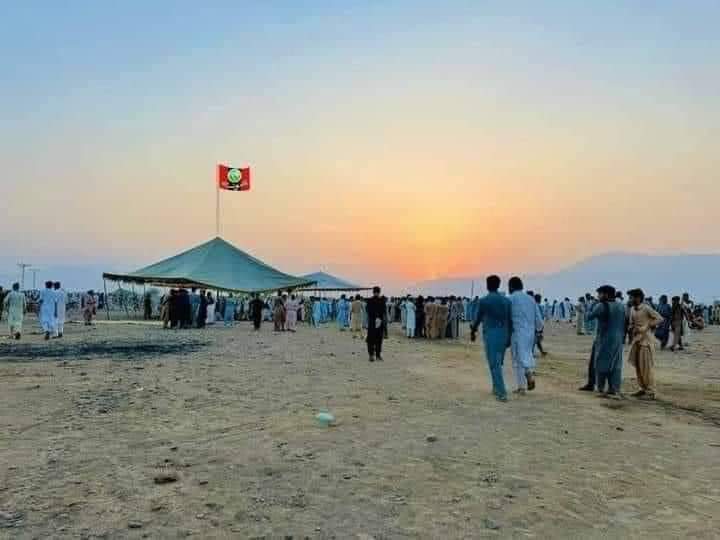
Defiance Amid Tragedy
As the sun began to set over Khyber’s mountains, the thousands gathered remained resolute. Despite the violence, the grief, and the political tensions, they had come to the jirga to be heard, and they would not leave until their message was clear. “We will not stop until there is peace,” said one attendee, his eyes fixed on the speakers’ stage. “We are Pashtun. We stand together.”
Read More:
Thousands Defy Ban to Attend Pashtun Qaumi Jirga Against Terrorism
PTM Jirga Underway After KP Government Grants Permission
Internet Service Suspension in Peshawar Disrupts Businesses, Daily Life


